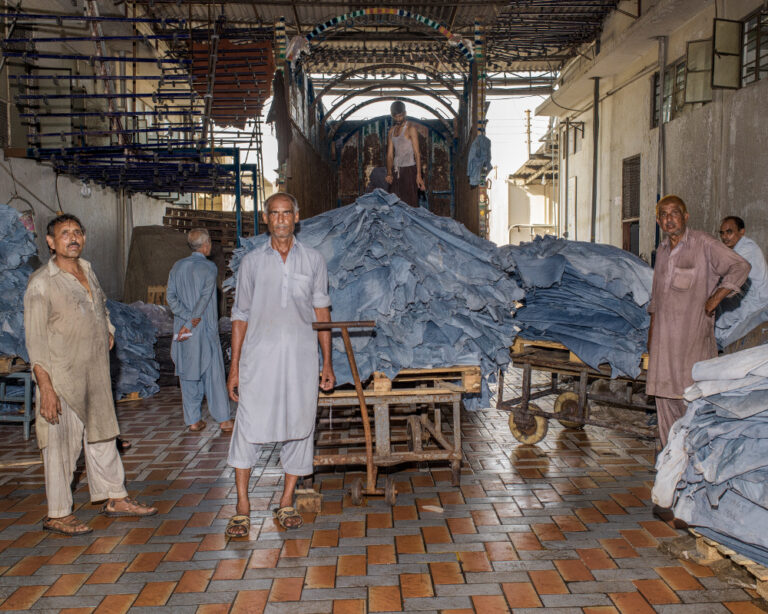
Hell-bent for leather
Labour conditions in the leather industry in Pakistan



Pakistani leather is produced under deplorable conditions. Labourers work for long hours for low wages, often handling harmful chemicals and heavy machinery without protective equipment. The majority of this leather ends up being exported to the European Union (EU). The EU stimulates these exports through its Generalised Scheme of Preferences (GSP+), which provides trade tariff reductions on the condition that Pakistan implements core international conventions relating to human and labour rights. However, as this report reveals, human and labour rights violations remain widespread across the country’s leather industry. Surveys and in-depth interviews with tannery workers in Karachi highlight several serious concerns related to health and safety, wages and freedom of association.
Workers do not receive adequate protection from exposure to dangerous chemicals used in the tanning process; many appear to suffer from heart, skin and respiratory diseases as a consequence. Some work with dangerous machinery with little or no safety training. In return for their labour in these challenging conditions, workers are paid salaries far below the cost of living.
Many live from pay check to pay check and resort to taking out loans to cover basic expenses. To make matters worse, it is difficult for workers to hold employers to account, since most lack documentation to prove their employment. In interviews, workers mentioned that members of trade unions are discriminated against at work.
Do you need more information?
-

Vincent Kiezebrink
Researcher
Partners
Publication



Related content
-
 Health issues and low incomes threaten leather workers in PakistanPosted in category:NewsPublished on:
Health issues and low incomes threaten leather workers in PakistanPosted in category:NewsPublished on: -

-

-

-


